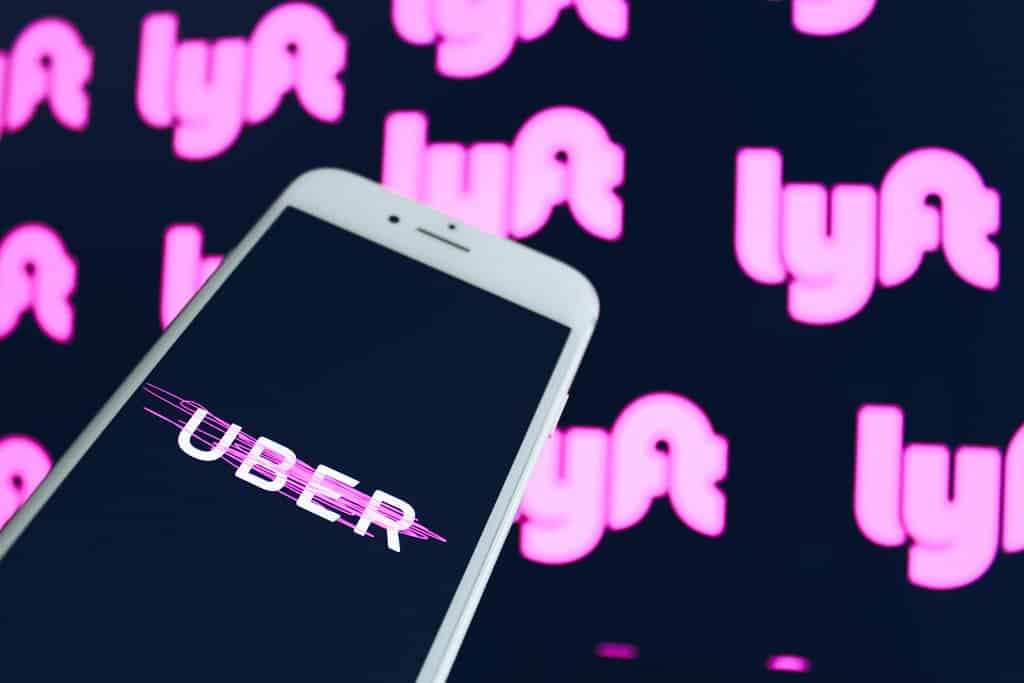
Courtney Brunson is a student at Harvard Law School and member of the Harvard Legal Aid Bureau.
According to the New York Times, the California Attorney General, alongside a group of the state’s city attorneys, announced a lawsuit against Uber and Lyft regarding their improper classifications of their drivers as independent contractors instead of employees. The lawsuit also focuses on the unfair business practices the companies have engaged in, which could result in millions of dollars of civil penalties and back wages for workers. This suit follows the passage of Assembly Bill 5 (AB5), a law in California which requires companies that control the tasks that their workers perform to classify them as employees. Both Uber and Lyft have crusaded heavily against the AB5 by investing $90 million in lobbying efforts to make themselves exempt from the law. This lawsuit is a significant blow to the profitability of the gig economy in California, as the lawsuit could force companies like Uber and Lyft to provide their workers with wage and insurance benefits down the line.
Since the outbreak of the virus, both companies have sought to provide their drivers with limited quarantine pay and cleaning supplies. They have also initiated or signaled that they would initiate mass layoffs and significant pay cuts, while asserting that they have significant cash reserves that will help them weather the storm. Lyft stated in a statement that they are “looking forward…to bring[ing] all the benefits of California’s innovation economy to as many workers as possible,” while Uber stated that it will push “to raise the standard of independent work for drivers in California” when contesting the lawsuit in court.
United Airlines has disclosed to its workforce of 11,500 employees that it plans to cut at least 30% of its managerial and administrative jobs in October. This comes days after the company told an estimated 15,000 customer service and baggage employers that their hours would be decreasing and 4,500 of its pilots that they would be transferred to smaller planes — which means lower hourly wages — and could be possibly furloughed if conditions did not improve before October. The company chose that date because the federal government’s billions in payroll support, which is contingent on the company not making mass layoffs, ends at the end of September. The airline claims that these cutbacks are being made due to travel slumps and economic uncertainty surrounding COVID-19. United Airlines is the first large aircraft carrier to explicitly state the amount of job cuts they expect to make when the federal aid package’s restrictions end.
The Intercept published a story yesterday regarding news that the Tennessee Valley Authority (TVA), the government’s agency that produces electrical power along the Tennessee River and its tributaries to 10 million people, plans to ship 20 percent of its highly-skilled technology workforce overseas. The nation’s largest government owned power provider, TVA has already told an estimated 120 workers that they would be losing their jobs this summer, while another 100 or so workers have been told via their union that they are also likely to lose their positions. TVA has responded to such allegations by asserting that the change was not made to cut costs but was instead done to “increase opportunity for innovation and expertise.” The company has also stated that the jobs will remain in the country because the vendors they are sending the jobs to are U.S. based subsidiaries. The TVA worker’s union, the International Federation of Professional and Technical Engineers (IFPTE), has pointed to other instances in which the layoffs of workers has lead to foreign outsourcing, including the Pacific Gas and Electric layoff in 2017.
Following up on commentator Maxwell Ulin’s discussion of the unprecedented organizing of workers surrounding the pandemic, an international organization called Amazon Workers International has formed to demand that Amazon take certain steps around the world to provide its workers with higher wages and more benefits in the midst of the COVID-19 crisis. Comprised of workers from Germany, Poland, Spain, France, Slovakia, and the United States, the workers are pressuring the company to increase their pay by $2 an hour and provide an additional 5 minutes in break time not only during the coronavirus but also once the pandemic has ended. Other demands that the workers have include the curtailing of company retaliation against employees who have spoken out against Amazon’s bad practices, including Chris Smalls, a worker in a warehouse in Staten Island, New York. Amazon responded by saying that though they respect the employees right to protest, it does not provide them with “blanket immunity against bad actions.”






Daily News & Commentary
Start your day with our roundup of the latest labor developments. See all
April 18
Disneyland performers file petition for unionization and union elections begin at Volkswagen plant in Tennessee.
April 18
In today’s Tech@Work, a regulation-of-algorithms-in-hiring blitz: Mass. AG issues advisory clarifying how state laws apply to AI decisionmaking tools; and British union TUC launches campaign for new law to regulate the use of AI at work.
April 17
Southern governors oppose UAW organizing in their states; Florida bans local heat protections for workers; Google employees occupy company offices to protest contracts with the Israeli government
April 16
EEOC publishes final regulation implementing the Pregnant Workers Fairness Act, Volkswagen workers in Tennessee gear up for a union election, and the First Circuit revives the Whole Foods case over BLM masks.
April 15
The Supreme Court ruled in favor of bakery delivery drivers in an exemption from mandatory arbitration case; A Teamsters Local ends its 18-month strike by accepting settlement payments and agreeing to dissolve
April 14
SAG-AFTRA wins AI protections; DeSantis signs Florida bill preempting local employment regulation; NLRB judge says Whole Foods subpoenas violate federal labor law.